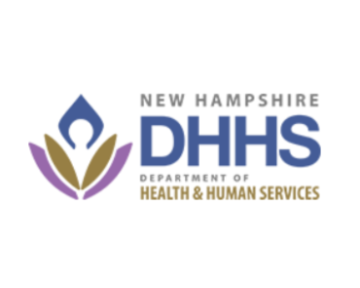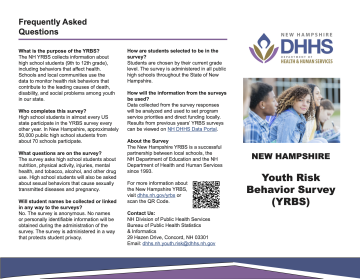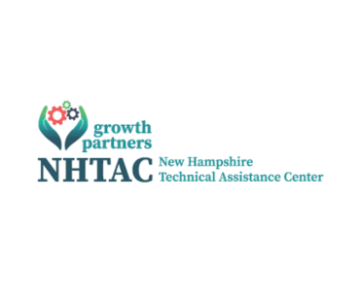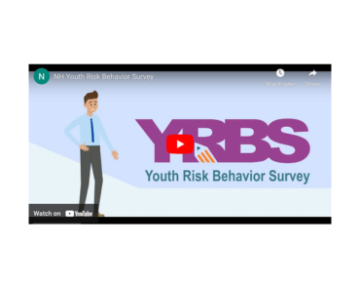
Every day, Granite State schools, parents, and communities work together to maximize student academic achievement and enhance life outcomes to keep our state prosperous, safe, and thriving.
But how do local communities know where to focus prevention resources? One way has been through the confidential Youth Risk Behavior Survey, also called the YRBS.
This completely anonymous and voluntary survey allows young people to share their real-life experiences while maintaining their privacy. The YRBS is tailored to meet the specific needs of Granite State students and families and requires only about 40 minutes every two years.
Learn More about the Youth Risk Behavior Survey
Topics of focus include many of the leading causes of death and poor health, such as:
• Mental health
• Intentional and unintentional injuries
• Risky sexual behaviors
• Alcohol, tobacco, and drug use
• Physical activity, obesity, and nutrition
• Asthma
• Bullying and violence
By gathering factual, scientifically-validated information, the trusted research of the YRBS helps parents, schools, and communities learn how to better prevent young people from engaging in unsafe or unhealthy behaviors. Because the YRBS has been given since 1993, it allows us to see how trends have changed over time and when we are making improvements or facing setbacks.
Importantly, asking students about risky behaviors does not make it more likely they will engage in them1. Still, parents are able to review the questions before their child(ren) participate, and are able to opt out. New Hampshire school districts are required to make the questionnaire available on their website and notify families at least 10 days before the survey is given. Students must be told the survey is voluntary and may choose not to participate even without an opt-out form.
But the more students participate, the clearer the picture will be of where students are doing well and where parents, schools, and communities need to target future efforts. Parents have the greatest influence on teen decisions about risky behavior, and the YRBS helps them better guide their child(ren)2.
About the Bill
The Youth Risk Behavior Survey is one of the most important tools New Hampshire has for understanding the challenges young people face, from substance use and mental health struggles to
bullying and physical safety. School districts, public health professionals, and policymakers rely on this data to direct resources where kids need them most.
House Bill 1191 would effectively gut participation in the survey by
switching from an opt-out to an opt-in consent model. Research consistently shows that opt-in requirements dramatically reduce response rates, which would make the data unreliable and leave
communities flying blind when it comes to youth health trends.
Take Action
Email Your State Representative(s)
Share Your Story
Will you share your experience to help protect the Youth Risk Behavior Survey?
Stories are powerful tools that can be shared with lawmakers and the public to influence policy change. New Futures can help you develop effective ways to share
your story.
- Are you a prevention professional whose work depends on data from the YRBS?
- Are you a parent who wants to ensure you have the insights you need about today's youth?
- Are you a young person who feels it is important for teen voices to be heard?
Attend or Testify at a Public Hearing
Make your voice heard by attending or testifying at a public hearing! New Futures can help you prepare remarks, find the committee room, and offer moral support at the hearing.
Please see the Bill Status section below to see if this bill is currently scheduled for a hearing.
If you are interested in attending a currently scheduled hearing or would like us to let you know when future hearings are scheduled, please click the button below to indicate your interest.
You can learn more about what to expect on our Ways to Advocate webpage.
Need help? Contact Wendy Chase (Community Engagement Coordinator) with questions.
Bill Status
Thursday, February 19: Because the bill's sponsors would like to withdraw it, the committee won’t make its usual "ought to pass" or "inexpedient to legislate" recommendation. Instead, there will be a motion on the House floor to withdraw the bill, which State Representatives will vote on. Check out all the options above under "Take Action" to see how you can make your voice heard!
February 9: The House Education Policy and Administration Committee held a public hearing, and several advocates came out to testify. We are grateful to them, along with the 395 Granite Staters who signed in virtually to oppose the bill! (Only 9 signed in to support it.) At the hearing, the bill’s main sponsor announced that she and the co-sponsors are hoping to withdraw the bill.
January 7, 2026: House Bill 1191 was introduced and assigned to the House Education Policy and Administration Committee.
2025: A similar bill, House Bill 446, passed the House and Senate but was vetoed by Governor Ayotte — a win for keeping NH youth healthy! You can see how State Senators voted on the bill here (click on "Ought to Pass (16-8).
You can learn more about how New Hampshire's legislative process works on our About the Legislature webpage, or take one of our advocacy trainings.
If you'd like to hear about the bill's progress, you can sign up for automated updates from the NH Legislature here.














